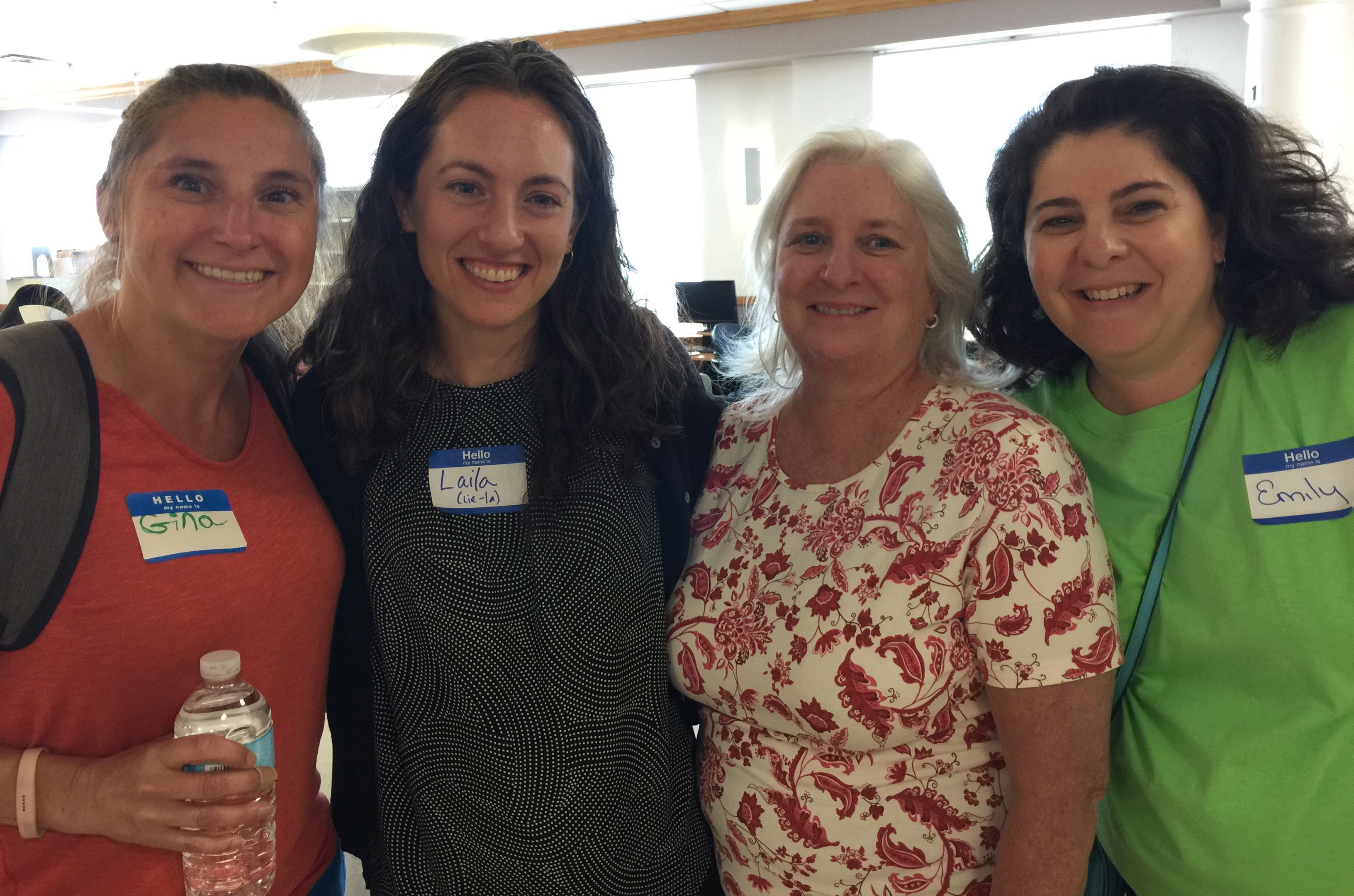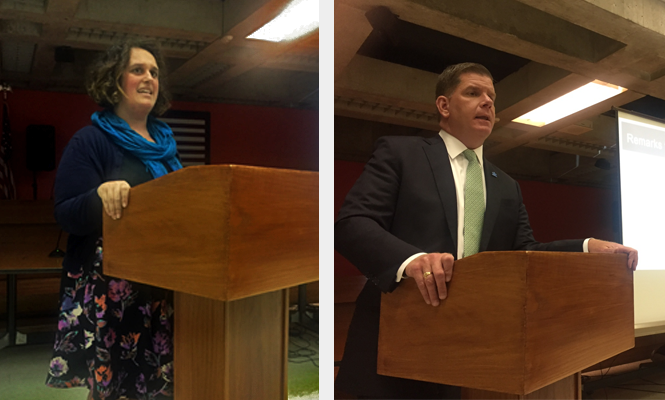Access: The TAC Blog
September 2018: News, Resources, & Happenings at TAC
New Mainstream Housing Voucher Awards Announced
Last week, the U.S. Department of Housing and Urban Development (HUD) announced the award of almost $100 million in Mainstream Housing Choice Vouchers (HCVs) to 285 public housing authorities in 45 states, the District of Columbia, and Guam. As HUD noted in its press release, the availability of 12,000 new vouchers for non-elderly, low-income people with disabilities "helps to further the goals of the Americans with Disabilities Act by helping persons with disabilities live in the most integrated setting."
Housing agencies must target these new vouchers to at least one of the following groups of people with disabilities:
- People transitioning out of institutional or other segregated settings
- People at serious risk of institutionalization
- People experiencing homelessness
- People at risk of becoming homeless
In its application scoring system, HUD provided significant incentives for public housing authorities (PHAs) to partner with state or local agencies that work with these populations. To help foster such collaborations, TAC and the National Alliance to End Homelessness, the National Association of Housing and Redevelopment Officials, the National Council of State Housing Agencies, and the Consortium for Citizens with Disabilities co-hosted a series of outreach webinars for service providers, Continuums of Care (CoCs), and disability rights advocates as well as PHA leadership. More than 1,200 PHAs, CoCs, disability organizations, and other local partners participated in preparation for the application process.
What's Next?
Nearly $300 million in HUD's FY 2018 budget for the Mainstream HCV program remains. What does this mean for your community?
Apply: If your community did not apply for funds, start laying the groundwork now for your response to the next opportunity, which is likely to be in the near future.
Reapply: If you applied this summer but did not receive funding, request a debriefing from HUD (as described in the Notice of Funding Availability).
Reach out to your local PHA: Housing authorities that have been awarded vouchers will need the assistance of local homeless, disability, and other service agencies to implement this program effectively!
As TAC's recent report Priced Out: The Housing Crisis for People with Disabilities documents, non-elderly adults with disabilities living on Supplemental Security Income are confronting a housing affordability gap across our nation. These new federal funds can help close the gap for people with disabilities in your community.
TAC Staff in Action
STAFF ACTIVITIES
TAC Associate Phil Allen teamed up with Bill Burns, director of Family Promise of Onterio County, NY, to bike 100 miles in the 2018 Point to Point ride, raising over $1,000 for the Vermont Foodbank; As part of TAC's work with the Nevada Partnership for Homeless Youth, Associates Ellen Fitzpatrick and Lauren Knott facilitated a meeting in Las Vegas with juvenile justice and child welfare system representatives, youth service providers, young people who have experienced homelessness, and other stakeholders to determine objectives and strategies to include in the group's plan to end youth homelessness in Southern Nevada; Through the Department of Veterans Affairs' Supportive Services for Veteran Families program, Managing Director Marie Herb, Senior Consultant Jim Yates, Associates Phil Allen and Douglas Tetrault, and contractor Naomi Sweitzer have conducted launch meetings throughout the summer in communities that are part of a pilot program focused on rapid resolution of housing crises; Executive Director Kevin Martone participated in Monarch Housing Associates' New Jersey Hill Day in Washington, DC to advocate for strong housing assistance programs; Administrative Assistant Mayra Pabon started as a volunteer at Horizons for Homeless Children; Mayra also represented TAC at a celebration event for graduates of the Boston Center for Independent Living's Transitions Internship Program, including TAC summer intern Jordon Myers (see below).
STAFF TRANSITIONS
We are happy to announce the addition of two new Senior Associates to the TAC team. Rachel Post, who will work with the Human Services Group, is based in Portland, OR where she has worked both locally and nationally on programs to improve social determinants of health. At TAC, Rachel will provide consultation and support for initiatives that create and sustain integrated health, behavioral health, employment, and housing programs and services for vulnerable populations. Ayana Dilday Gonzalez, who is joining our Housing Group, will be based here in our Boston office; Ayana brings extensive state-level leadership experience developing and maintaining supportive housing projects, and will be working with us on HUD's CoC and 811 Project-based Rental Assistance programs and other HUD multifamily housing Initiatives.
Congratulations to Francine Arienti on her new role as TAC's Human Services Director, and to Associate Ashley Mann-McLellan on her new role as a mom! Welcome to the world, Zoe McLellan!
And finally, thanks and farewell to summer intern Jordon Myers, a Framingham State University student who joined us through the Boston Center for Independent Living's Transitions Internship Program.
June 2017: Putting the Pieces Together
Even though “Bill” showed up right on time for Boston’s Third Surge to End Chronic Homelessness, he told me that he "thought it was going to be stunt, a lot of talking but nothing to show for it.” But when Bill left the building — some seven hours after I greeted him as his assigned ambassador for the day — he had plenty to show for his efforts: a doctor and an appointment, an insurance provider, and best of all his own apartment. It was clear that this was no stunt but an incredible collaboration between the Commonwealth of Massachusetts, the City of Boston, and lots and lots of providers and volunteers.
Behind the Scenes
In many ways, an event like this is just plain old common sense: Bring together all the players — MassHealth/Medicaid, Social Security, the Boston Housing Authority, the Metropolitan Boston Housing Partnership, accountable care organizations, homeless service providers, housing navigators, and the people who need what all of them have to offer — to resolve the barriers that have kept Boston's chronically homeless individuals from finding and keeping housing. But that view is just like looking at the face of the watch and not seeing all the intricacies that hide behind it.
Led by the Massachusetts Department of Elder Affairs and Boston's Department of Neighborhood Development, the Boston Surge was the product of months of detailed planning and collaboration. Data was shared between MassHealth and homeless shelter and outreach providers, and matched to identify individuals over age 50 who had been living on the streets or in homeless shelters for a year or more or who had experienced homelessness several times over the past few years. Some of these individuals were currently on Medicaid while others had previously been, but were no longer active. For the Third Surge, 124 individuals were invited and encouraged and supported to participate. Meanwhile, the Boston Housing Authority and the Metropolitan Boston Housing Partnership looked through their portfolios of housing units and subsidies to identify available housing resources. An individualized "passport" with potential options of health care and support services was created for each person before the event.
The Big Day
Finally, on the day of the Surge, the teams arrived. Representing Social Security, MassHealth, the Housing Authority, service providers, and accountable care organizations, they brought computers, printers, and a determination to get the job done. Ambassadors (all volunteers like myself) were each connected to one "guest" and walked them through the process. The day was busy, chaotic at times, but filled with an energy and a collective sense of will to get people housed. There were no photo ops, no speeches — there was too much work to do.
More than half of the people experiencing chronic homelessness who had been invited — a strong turnout — came to the event. Bill and I got to know one another over breakfast. A Boston native, he fell on hard times two years ago, lost his housing, and had been living in a shelter ever since. On the spot, we got Bill's social security documentation printed out. We met with several providers from senior care organizations, and he signed up for health services, supportive services, and a primary care physician.
Next, we filled out the Boston Housing Authority application and waited while staff reviewed Bill's criminal background records and other eligibility requirements. We sat outside the room and smiled each time we heard clapping indicating that someone had received a housing unit. Then it was Bill's turn. He was told he was eligible, and then got to pick a housing development that met his needs. The applause was for him this time. He sat there just saying over and over, "I thought this was going to be a stunt, I can't believe it!"
Real Results
Boston’s Third Surge to End Chronic Homelessness produced impressive results. Forty-two elders left this one-day event with offers of apartments, while another seventeen have strong linkages to housing after a few more steps. MassHealth was able to re-enroll or upgrade coverage for 12 participants. And 62 elders are now engaged with supportive services to help them stabilize their health and housing for the long term.
The best news is that Boston's model can easily be replicated. No big hero is required — or even stunt doubles. All it took to make it happen was the commitment of key individuals and agencies, along with plenty of hard work. I’m proud of Boston for coming together to end chronic homelessness, and I know your community can do it too.
April 2017: News, Resources, and Happenings at TAC
Appealing to Affordable Housing Developers in Boston
When affordable housing developers and service providers collaborate, new possibilities open up for people who have been homeless to make the transition to being long-term, successful tenants. TAC, together with the Boston Department of Neighborhood Development and Mayor Marty Walsh, led a convening at City Hall on April 13 to foster such partnerships — and specifically to encourage the implementation of homeless veteran and “move on” preferences in affordable housing properties. Speakers described the key role that prioritizing vacant units for populations such as homeless veterans and supported housing residents plays in Boston’s efforts to end homelessness. TAC Associate Ashley Mann-McLellan, who helps communities across the U.S. build public-private partnerships to implement homeless preferences in HUD-assisted housing, explained how developers can adopt homeless preferences with the support of service providers to ensure successful results for everyone: new tenants, their neighbors, and property staff.
TAC Staff in Action
Senior Associate Jon Delman has joined the board of the Association for People Supporting Employment First – MA chapter; Senior Consultant Sherry Lerch presented to the leadership of AbbeHealth in Cedar Rapids, IA on ways to maximize the effectiveness of permanent supportive housing; Associate Ashley Mann-McLellan led a two-day, customized workshop on Housing First for providers in Long Island, NY, and a training on property owner engagement for organizations serving homeless veterans in Denver, CO; Executive Director Kevin Martone taught a class this semester to 3rd and 4th year medical students at Tufts University Medical School, on “Mental Health Systems and Public Health”; at the National Council for Behavioral Health Conference in Seattle, WA, Senior Consultant John O’Brien presented on Medicaid strategies for supportive housing and co-led a recovery housing workshop; Senior Policy Advisor Lisa Sloane and Associate Ellen Fitzpatrick — plus a film crew — headed to Maryland, Minnesota, and Louisiana to work on our forthcoming videos about the HUD 811 Project Rental Assistance program; Senior Consultant Jim Yates presented on “National Trends in Supportive Housing” at the Housing Leadership Group Summit in Albuquerque, NM, and on the National Housing Trust Fund at the National Low Income Housing Coalition’s Legislative Forum in Washington, DC; Jim has also been conducting strategic planning sessions in communities that are part of HUD’s Vets@Home initiative; the TAC Supportive Services for Veteran Families team was instrumental in planning and delivering eight regional meetings for SSVF grantees and their community partners, as well as — together with key partners at Abt Associates — eight locally driven community meetings around the country to help Continuums of Care in their efforts to end veteran homelessness.






